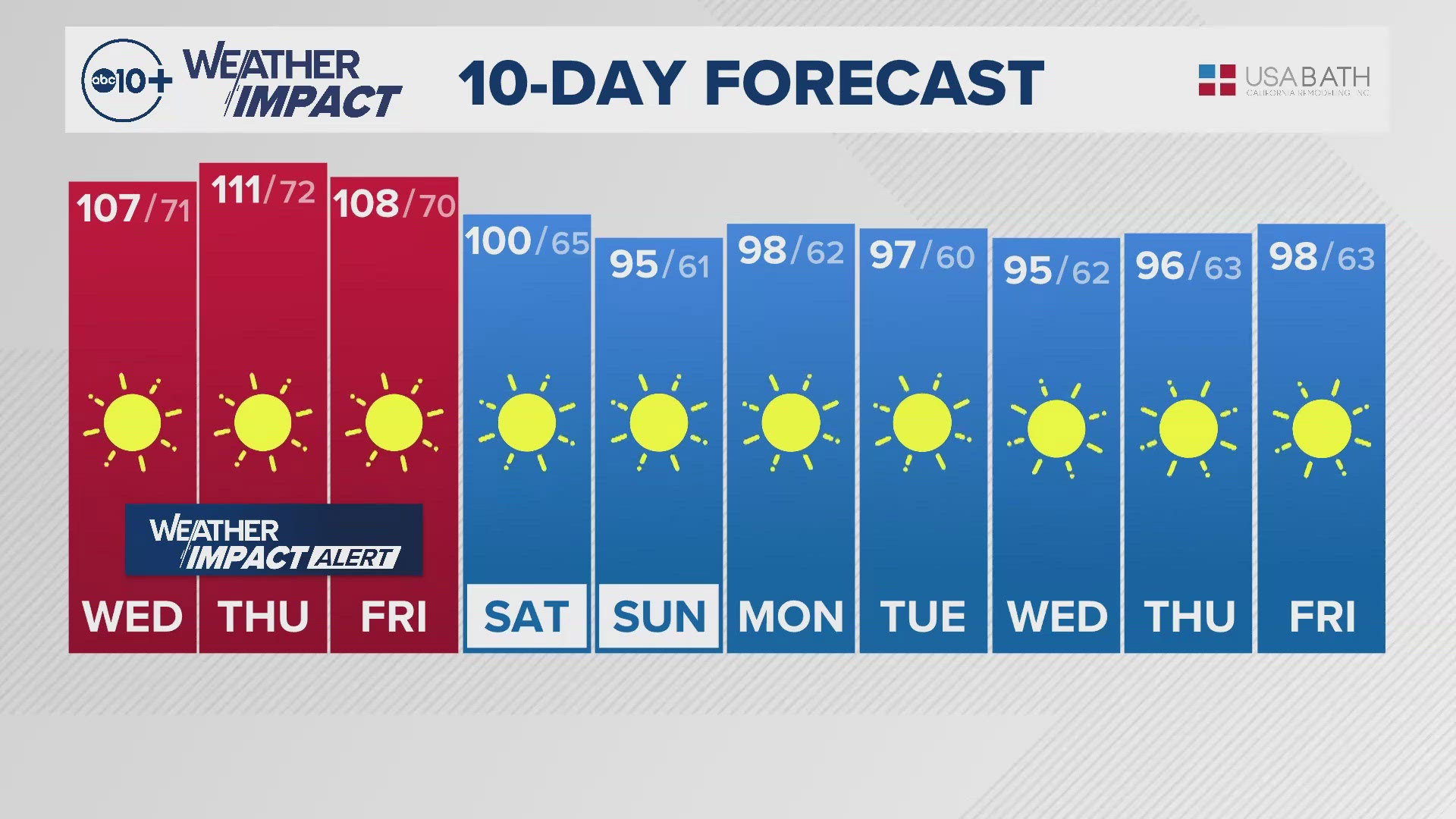SACRAMENTO, Calif. — Extreme heat may worsen depression, anxiety and other symptoms of psychiatric conditions, experts say.
Starting in July, a heat wave prompted the National Weather Service to issue an excessive heat warning for much of Northern California. Sacramento had a slight break from the heat Sunday through Tuesday, but temperatures over 105 degrees are forecasted Wednesday, Thursday and Friday.
Some studies suggest it isn’t just heat affecting mental health but a big change in temperature, according to Dr. James Bourgeois, psychiatry services director at UC Davis Medical Center. Extreme heat, especially heat extreme compared to one’s usual climate, may make a person experience poor sleep and more irritability, he said.
“If someone already has a known psychiatric illness, one can imagine those things might be a bit worse,” said Bourgeois, who also serves as a clinical psychiatry professor at UC Davis.
Heat and behavior
A person’s body temperature is not always constant, according to Dr. Martin Paulus, director of the Laureate Institute for Brain Research in Tulsa, Oklahoma.
One’s body temperature undergoes slight variation in a day and tends to be lower at nighttime. It has to do with the way brains regulate sleep cycles, he said.
“Heat is a substantial stressor at nighttime because it interferes with that regulation, and that disrupts sleep,” Paulus said.
Heat increases one’s level of stress in general, and particular psychiatric disorders aren’t more or less sensitive to heat, he said. Adding chronic stress to the stress a person with depression or anxiety already feels can worsen symptoms.
“People feel more anxious, maybe not even knowing why they feel more anxious, because their system is more driven by high levels of cortisol and other stress hormones that are released physiologically in response to the ambient heat that people find themselves (in),” Paulus said.
Paulus said there are also several studies showing interpersonal violence and partner violence increase during times of heat.
“That's because people become more irritable, and you have interactions between people who live close together that then increases stress too,” he said.
Heat and medication
Psychiatric medication is generally safe, but patients may be more susceptible to side effects in a hot climate, experts say.
Some popular antidepressants can increase sweating to the point where it can disrupt a human body’s temperature regulation a little, Bourgeois said. They also have some risk of changing sodium metabolism, which can affect how one does medically.
“I want to make one other point since this is Sacramento. The medicine, lithium, which is used for bipolar disorder… it is extremely risky with dehydration,” he said. “What we always tell our emergency room doctors, if patients come in with confusion and rapidly observe changes in behavior, you need to do certain laboratory assessments, and you need to know if they're on these particular psychiatric medicines.”
Paulus said certain medications make one more susceptible to orthostatic hypotension, or when you get up dizzy and may pass out, so it’s important to hydrate. Somewhat separate from heat, some medications may also make people more sensitive to sunlight, he said.
Tips to beat heat, depression and anxiety
There are several tips experts say people can employ to reduce stress amid a heat wave, whether they have a diagnosed mental illness or encounter daily, smaller amounts of depression and anxiety.
Some are standard: reduce heat exposure, get to a cool place and hydrate.
Others tips include:
- Scaling back exercise. Physical activity is one of the best antidepressants, Paulus said despite this it is important for people to monitor sweat and fluid loss if they exercise outside in hot climates.
- Mindfulness, or taking moments to check in on your own mental or physical condition.
- Recognizing stress may come from an environment or be situation-related.
- Checking in with others. Paulus said opening conversations to stress and mental health can be effective because knowing an experience is shared can be a coping mechanism.
Bourgeois said groups most vulnerable to extreme heat include the elderly, elderly people suffering from dementia and the homeless.
“If someone on the basis of severe mental illness cannot keep a home and cannot keep physically safe, and they're out in the environment more, they're going to be exposed just for that reason,” he said.



















